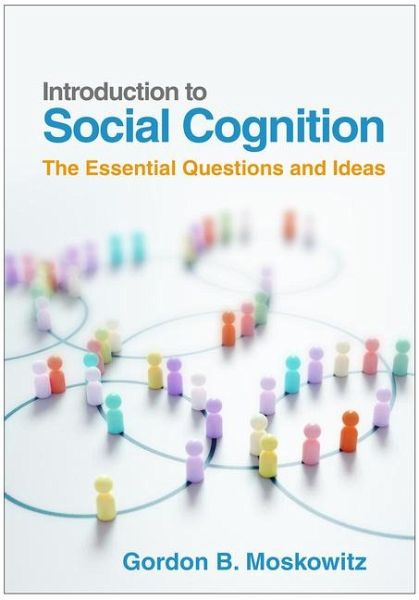
Versandkostenfrei!
Versandfertig in über 4 Wochen

PAYBACK Punkte
56 °P sammeln!




This engaging text delves into social cognition by exploring major questions in the field through an everyday lens. Students are introduced to core concepts, processes, and findings pertaining to how people come to know themselves and understand the behavior of others.
Gordon B. Moskowitz, PhD, is Professor in the Department of Psychology at Lehigh University. He has served as Director of Lehigh's Cognitive Science Program and Chair of the Department of Psychology. He served two terms on the executive committee of the Society of Experimental Social Psychology, has hosted the Society's conference twice, and annually co-organizes the preeminent social cognition conference, the Person Memory Interest Group. He has held editorial positions for Social and Personality Psychology Compass, as well as for the Journal of Experimental Social Psychology, and sits on the editorial board for Motivation Science and the Journal of Personality and Social Psychology. Dr. Moskowitz conducts research at the intersection of motivation, implicit bias, and social cognition. His work spans the topics of proactive control, impression formation, stereotyping, minority influence, bias reduction interventions, perspective taking, egalitarianism, self-regulation, impression updating, ambivalence, and backlash. His research program more recently has examined bias in the practice of medicine and the reduction of disparities in health and health care.
Produktdetails
- Verlag: Guilford Publications
- Seitenzahl: 557
- Erscheinungstermin: 7. August 2024
- Englisch
- Abmessung: 258mm x 183mm x 35mm
- Gewicht: 1172g
- ISBN-13: 9781462554553
- ISBN-10: 1462554555
- Artikelnr.: 69520977
Herstellerkennzeichnung
Libri GmbH
Europaallee 1
36244 Bad Hersfeld
gpsr@libri.de
Für dieses Produkt wurde noch keine Bewertung abgegeben. Wir würden uns sehr freuen, wenn du die erste Bewertung schreibst!
Eine Bewertung schreiben
Eine Bewertung schreiben
Andere Kunden interessierten sich für











